Post-Swim Skin and Haircare Routine
Maintaining healthy skin and hair isn’t always easy, especially when you spend time swimming in the pool or ocean. Pool chemicals like chlorine or salt water can strip away your skin and hair’s natural hydration, leaving you feeling parched and itchy.
Luckily, with a post-swim skin and haircare routine, you don’t have to endure persistent dryness. At Trihard, we offer a complete selection of products that nourish your skin and hair while washing away drying chemicals.
Keep reading to learn more about how a skin and haircare routine can help you maintain soft skin and luscious strands, even after spending hours in the pool.
How Do You Take Care of Your Hair and Skin After Swimming?
You can take care of your hair and skin after swimming by washing away pool chemicals and using hydrating post-swim hair or skincare products.
Washing Off Pool Chemicals
Washing off pool chemicals after swimming is vital for skin and hair health. Chlorine and other pool chemicals can lead to dryness, irritation, and fading of swimsuits. A quick post-swim shower with gentle soap helps remove these chemicals, reducing the risk of skin allergies and rashes. Rinsing hair with water before shampooing prevents chlorine buildup and keeps hair from becoming brittle and discolored. Prioritizing this simple step ensures a refreshing after-swim experience while safeguarding your well-being.
As soon as possible after leaving the pool, step into the shower to wash the chlorine off of your skin. Speed matters with this tip; the longer the chlorine sits on your body, the more pronounced its effects will be. After all, with time, chlorine is absorbed into the pores of both your skin and hair, creating the risk of damage.
Hydrating Post-Swim Hair and Skincare Products
Trihard offers a range of deeply hydrating hair and skincare products designed for swimmers’ unique needs. Our proprietary PLECOTECH technology features red algae, dead sea salts, and key botanical extracts to thoroughly remove chlorine from your skin and hair without causing damage or irritation.

When used after swimming, Trihard’s products wash off chlorine and saltwater. When used before swimming, they neutralize chlorine absorption by providing an extra protective layer to the skin and hair.
How Can I Protect My Skin After Swimming?
You can protect your skin after swimming by ensuring no chemicals are left on the skin by using a swim-specialized body wash and using a moisturizing lotion.
To make sure pool or ocean chemicals aren’t left on your skin after a swim, take a shower as soon as possible. Many pools have locker rooms with showers or even poolside shower heads, making it easy to wash away the chlorine promptly.
But rinsing off isn’t enough to remove chemicals from your skin. You’ll need a clarifying body wash that’s formulated to eliminate chlorine.
Moisturizing Post-Swim Lotion
After swimming, especially for several hours, it’s important to replenish your skin’s hydration. You can do so by applying a deeply moisturizing lotion after taking a shower.
Trihard offers a Pre & Post Swim Body Lotion, which helps reduce chlorine and saltwater absorption and restore the skin’s moisture barrier while soothing dry, irritating skin. With coconut oil, shea butter, hyaluronic acid, red algae, and dead sea minerals, it can keep your skin healthy as part of your routine.

How Do You Treat Your Hair After Swimming?
To treat your hair after swimming, use an anti-chlorine shampoo followed by a hydrating conditioner.
Many people don’t realize that hair strands are porous, just like the skin. This means that your hair can absorb and retain chlorinated water. If you simply towel dry your hair after swimming, chlorine will linger in the pores of your strands. This leads to dry, brittle strands that are prone to frizziness and split ends.
So, the best way to care for your hair after spending time in the pool or ocean is to treat your hair with clarifying shampoo and conditioner. For your longest days in the water, consider a double shampoo – lather, rinse, repeat, and condition. This ensures that stubborn pool chemicals are completely washed away, leaving skin soft and hydrated.
What Shampoo to Use After Swimming?
The best shampoo to use after swimming is an anti-chlorine shampoo, like Trihard’s Swimmers Shampoo.
The Swimmers Shampoo from Trihard is designed to eliminate pool chemicals, hydrate dry post-swim hair, neutralize chlorine odors, and alleviate scalp irritation. It contains a proprietary blend of dead sea salts, magnesium chloride, and red algae to prevent adverse effects from chlorine exposure. Argan oil, shea oil, jojoba oil, keratin, and red algae provide lasting hydration for your strands, while aloe vera and menthol calm the scalp.
After swimming, many people feel fatigued. Trihard offers Swimmers Shampoo Extra Boost, a unique formula that provides an energizing cooling boost from menthol. This can help regulate your body temperature to prevent post-swim sweating, as sweat can further dry out and damage your hair.

Why Do I Need to Use Special Shampoo After Swimming?
Conventional shampoos aren’t designed to remove chlorine from hair strands thoroughly. If you use regular shampoos after spending time in the pool, chemicals may linger in your hair and scalp. This can trigger dry, broken strands and an inflamed, itchy scalp.
A shampoo that’s specially formulated to remove chlorine from the hair and scalp, like Trihard’s Swimmers Shampoo, will provide a deeper clean. Especially for your longest swim days, switching your regular shampoo for an anti-chlorine shampoo will make all the difference in preserving the health of your hair and scalp.
Trihard provides skin and haircare product bundles, making it easier than ever to care for your body post-swim. Plus, with a 30-day money-back guarantee, you can test out these products for yourself worry-free.


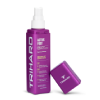



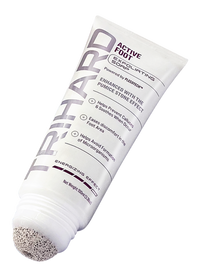



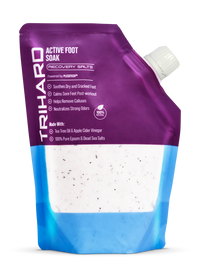




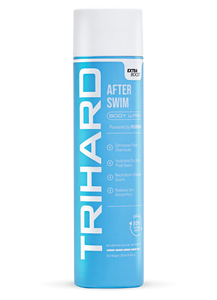
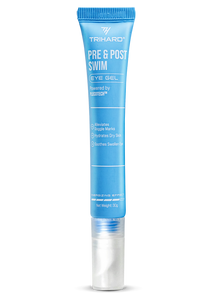


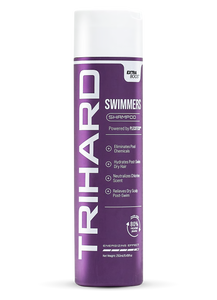









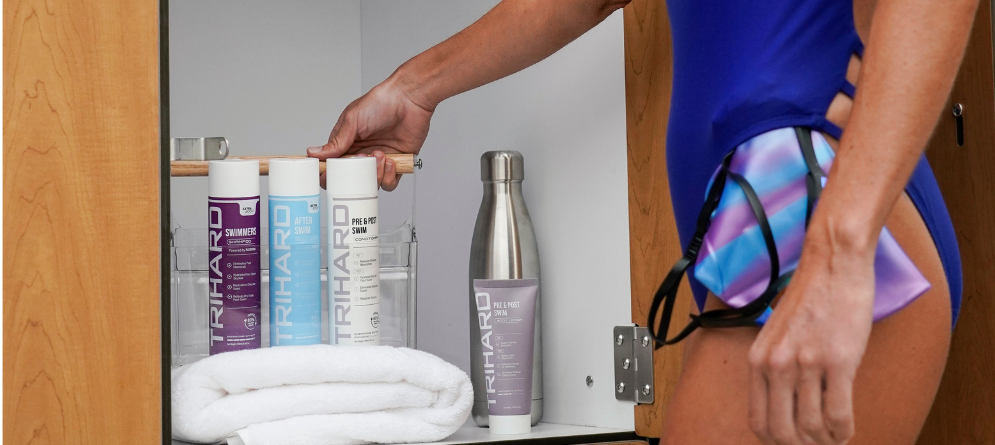
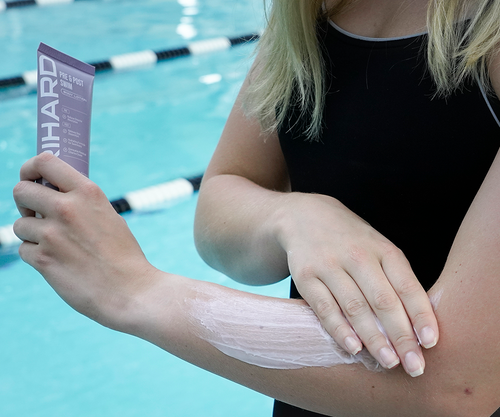

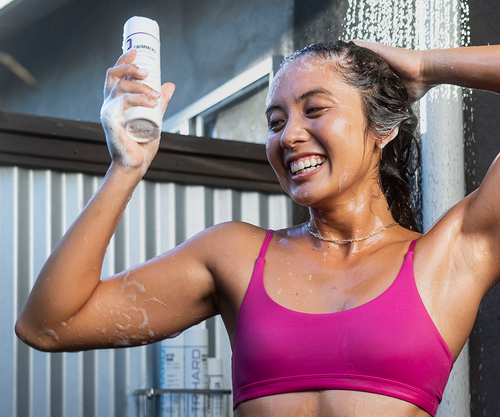
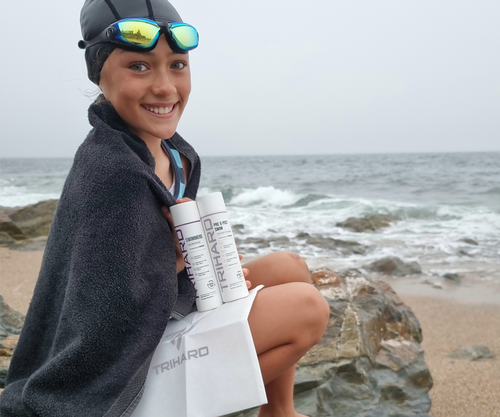
Leave a comment